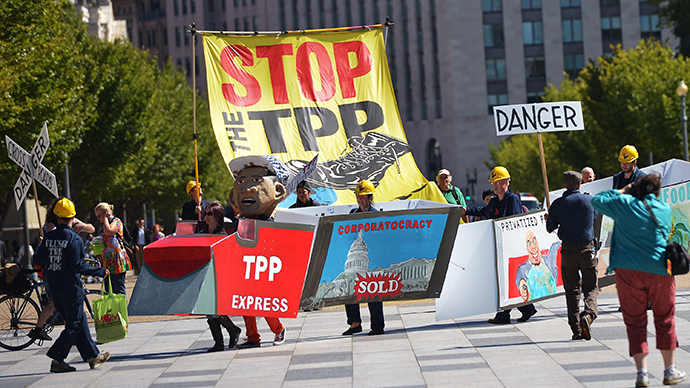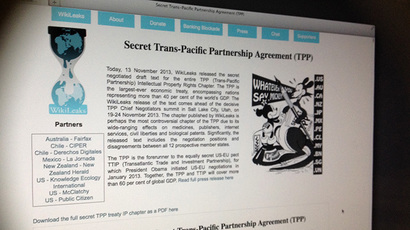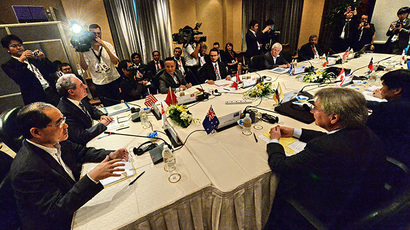'Toothless!' WikiLeaks reveals secret draft of TPP environment chapter

The environment protection provisions in the draft of the Trans-Pacific Partnership (TPP) free trade agreement will not be enforceable, says whistleblower site WikiLeaks, which released a section of the document.
The Environment Chapter of the TPP describes how the 12 countries negotiating the controversial treaty plan to protect the environment. As of November 2013, when the treaty was discussed at a Salt Lake City summit, the chapter lacked any mechanism to enforce it or any sanctions for violating it. This is in contrast with other chapters dealing with labor, intellectual property or agriculture, which all contain binding language.
With no enforcement clauses, the environment chapter is “a toothless public relations exercise” and “media sugar water,” said WikiLeaks founder Julian Assange.
The work on the TPP has been widely criticized for its secretive nature. Its impact would be global, considering that the prospect member-nations, including the US, Japan, Australia, New Zealand, account for some 40 percent of world’s GDP, but parties involved have been unwilling to disclose detail of the draft over the three years that negotiations dragged on.
WikiLeaks obtained draft documents from the Salt Lake City summit and has been publishing them since November 2013. There has been one meeting on the TPP after the summit so far.
If the chapter goes into the final document, it would be against a 2007 agreement, which then-President George W. Bush reached with US lawmakers, reports the New York Times. The so-called May 10 Agreement requires that all US free trade deals with foreign nations had legally binding environmental provisions. Apparently the US delegation finds it difficult to convince its 11 partners on the TPP to abide by it.
“Bilateral negotiations are a very different thing,” Jennifer Haverkamp, the former head of the United States trade representative’s environmental office told the newspaper. “Here, if the US is the only one pushing for this, it’s a real uphill battle to get others to agree if they don’t like it.”
Criticism of the environmental guards follows other complaints over the rules, which the TPP would impose on some of world’s biggest economies. Critics complained that the treaty would give overreaching intellectual property protection dealing with drugs and agriculture, restrict internet freedoms and empower multinational corporations to challenge country laws, among other things.














